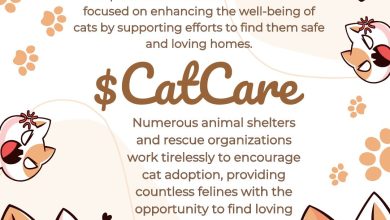Caring for Cats During Winter in Snow
Winter can be a challenging time for cats, especially those exposed to snow and cold temperatures. Whether your cat is an indoor or outdoor pet, it’s essential to provide proper care to ensure their health and comfort throughout the winter season.

How Cold Weather Affects Cats
Cold temperatures can pose serious risks to cats, including hypothermia and frostbite. Even though cats have fur, they are still susceptible to the cold, especially in snowy conditions. Senior cats, kittens, and short-haired breeds are particularly vulnerable.
Common Winter Hazards for Cats
- Frostbite and Hypothermia: Exposure to extreme cold can damage their ears, paws, and tail.
- Dehydration: Water sources may freeze, leaving outdoor cats without access to hydration.
- Chemical Exposure: Antifreeze and de-icing chemicals are toxic to cats if ingested.
- Shelter Seeking Behavior: Cats may hide in car engines or under vehicles for warmth.
Winter Care Tips for Cats
Ensuring your cat’s well-being during winter requires a proactive approach. Here are some essential care tips:
1. Provide Warm Shelter
If your cat spends time outdoors, ensure they have access to a warm, insulated shelter. A small, weatherproof shelter with soft bedding such as blankets or straw can help retain body heat.
2. Keep Them Indoors
Whenever possible, keep your cat indoors during extreme cold spells. If your cat insists on going outside, supervise their outdoor time and limit their exposure.
3. Regular Grooming
Grooming helps maintain your cat’s coat health by removing dirt and enhancing insulation. Ensure their fur remains clean and dry.
4. Adjust Their Diet
Cats may require more calories during winter to maintain body temperature. Consult your veterinarian to determine if your cat needs a diet adjustment.
5. Protect Their Paws
Snow, ice, and salt can irritate a cat’s paws. Wipe their paws after they come inside to remove any debris or harmful chemicals.
6. Hydration Is Key
Ensure fresh water is available at all times, and check outdoor water bowls frequently to prevent freezing.
Recognizing Signs of Cold Stress in Cats
It’s important to recognize early signs that your cat is struggling with the cold, such as:
- Shivering
- Lethargy
- Pale or bluish paw pads
- Seeking warmth excessively
If you notice any of these symptoms, take immediate action to warm your cat and seek veterinary advice.
Conclusion
Caring for cats during the winter months, especially in snowy conditions, requires attention and effort. By providing adequate shelter, nutrition, and grooming, you can ensure your feline friend stays safe and comfortable throughout the cold season.














![[Winter Cat Care] Keeping Cosy this Winter at Holiday Kitty Cat Care Keeping Cosy this Winter at Holiday Kitty Cat Care](https://catcare.top/wp-content/uploads/2025/01/Keeping-Cosy-this-Winter-at-Holiday-Kitty-Cat-Care-220x150.jpg)









